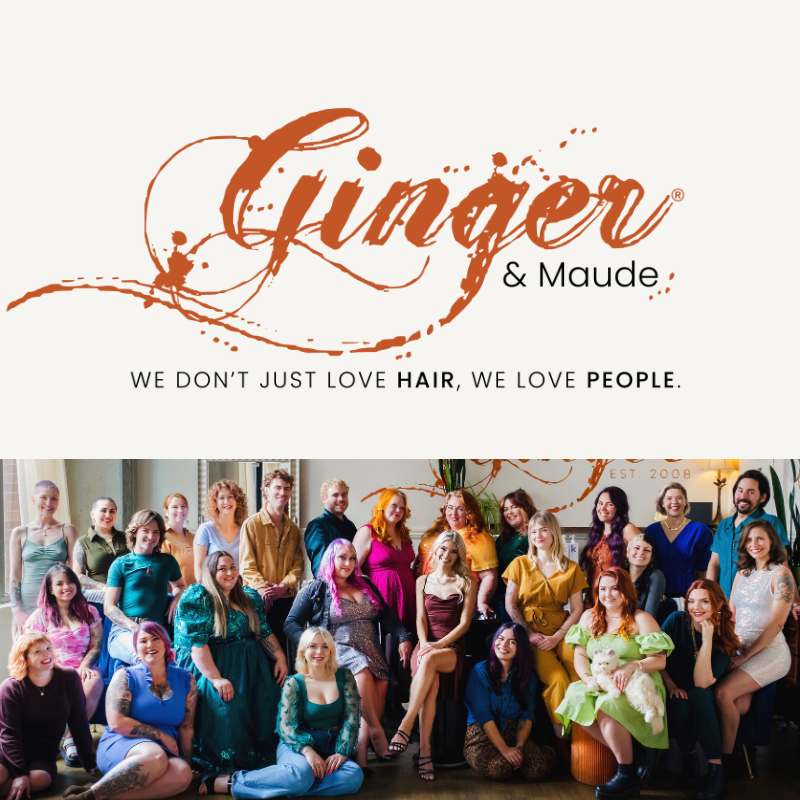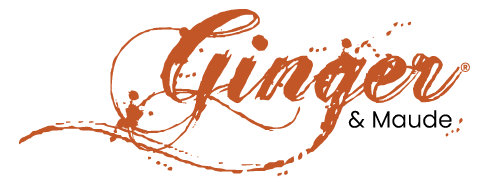
When I started my business in 2008, I asked myself, “What does my salon truly stand for?”
The answer came almost immediately: “People.”
I knew I wanted my salon to be a space for everyone, somewhere anyone, whether client or staff, could walk in and feel safe. But as the years went by, I came to learn just how far the beauty industry has to go to make that a reality for many people. I also realized that rather than sitting and waiting for the industry to come around, the onus was on me, as a salon owner and stylist, to learn and make changes within my corner of the world.
I worked steadily to build my business with this intention, this desire to make sure everybody and every body felt genuinely welcomed in my salon, leading to the introduction of livable wages for all staff members, installation of size-inclusive chairs and custom-designed cutting capes, and redefining our pricing structure to be based on hair length, rather than gender. In 2021, though, it was obvious I needed to do even more.
The fact is a startling number of stylists and clients still do not feel safe or valued in salons. Knowing this, I realized my goal couldn’t be just to do better in my own salon, but to do better in such a way that emboldened other salon owners to do the same. For that to happen, I needed to pivot my business to be fully guided by this focus, and in August of 2021, I galvanized this initiative with a new mission statement and tagline that aligned with the vision I had for a more inclusive salon and industry and the purpose I knew I was meant to fulfill as a salon owner: “Our boutique salons offer hair services and products in a welcoming environment, with a focus on promoting and supporting inclusion and the well-being of our customers, employees, and community. We don’t just love hair, we love people.” My priority every day since has been ensuring it stays true for my staff and my clients while inspiring other salon owners, and by extension, the industry as a whole, to evolve into a safer, more inclusive space for everyone.
Sometimes, this means creating something entirely new.
Learning Exchange:
Ginger & Maude’s Learning Exchange program, for example, was born in response to the hair industry’s historical and continual exclusion of the Black population. It seeks to address the lack of education and equitable haircare services available for folks with extra curly and coily hair and is available for clients with 4A-4C textures. All appointments through this program—which can include consulting, detangling, cleansing, cutting, finishing, hair coloring, and product guidance—are completely free of charge as I realize I am asking for the client’s time, patience, and trust while my stylists work to implement and enhance their skill set with these hair types. Every stylist working in my salon is required to participate in this program. To date, 17 out of 29 of them have graduated from it, meaning they are able to provide personal, safe, and caring attention to all clients, regardless of their hair type.
More often than not, though, this simply means casting a keener eye on systems already in place to see how they can be made more inclusive or easier to access. For example:
Inclusive Haircut Pricing:
Shortly after launching the Learning Exchange, I took another look at my pricing structure for haircuts, removing “Curly Cut” as a pricing category and instead implementing a structure that was fully based on the amount of time required for the service, regardless of hair texture. To ensure this structure remains equitable, the price of any haircut caps at 30 minutes more than the standard haircut service, regardless of the time required to finish the haircut.
Appointment Options to Reduce Anxiety:
I made our Silent Service, an appointment option designed to alleviate the stress of trying to keep up a conversation while in the chair, easier to book, so rather than having to make a verbal request, clients can simply select it while booking their appointment online.
I also started laying the groundwork for a new option, the Mirrorless Service, for folks who feel uncomfortable or anxious about having to sit in front of the mirror for extended periods of time while getting their hair done.
Empowering Youth Through Haircuts:
Empowered children grow into empowered adults. Children who are not only accepted but embraced for who they are go on to celebrate the differences they see in others. These beliefs have always driven our children’s haircuts, but to ensure everyone was on the same page before the appointment, we created a guide for parents describing how we work to include and empower their child during the appointment, including our refusal to gender haircuts even for children, and our requirement for consent from the child before beginning. I’ve also added the ability for kids feeling nervous or anxious to set up a meet-and-greet with their stylist prior to their appointment to help them feel more comfortable.
Outside of the salon, we have been fortunate enough to partner with a local organization to provide free hair care services to LGBTQIA2S+ youth and young adults experiencing houselessness, allowing us even more opportunity to empower and celebrate people in our community, especially adolescents.
Honoring Identities:
I love online booking, but one area I noticed it causing some occasional discomfort was with names. Our names matter, and I firmly believe that one of the kindest actions you can do to make someone else feel seen is learning their name and learning to say it correctly. Anyone who has grown up having their name butchered can tell you the dread that comes with having to introduce yourself to someone new, and the fact is, some folks don’t actually use the name associated with their account for various reasons.
When clients book an appointment, a survey is automatically included with their booking confirmation asking them various questions to ensure they have the best experience possible when they’re in the salon, such as their pronouns, how they feel about head massages, and if they prefer to enjoy their service quietly or with some conversation. By simply adding a question to that survey asking them 1) What they would like to be called, and/or 2) What the correct pronunciation of their name is, a lot of that stress has been alleviated on both sides—our clients know when they come in that they will be addressed correctly, and our staff feel prepared and confident in providing a welcoming experience from the very start when meeting a new client.
Respecting Beliefs and Customs:
Each staff member is entitled to six paid holidays a year. To honor each individual’s beliefs and customs, they are now able to self-select which days those paid holidays are.
Promoting Diversity in Hiring:
Recognizing that my salon exists in Portland, which is majority white, as well as the impact of both conscious and implicit biases—and that everyone has them—makes proactively supporting diversity in hiring even more crucial. Two ways I have done this are by providing scholarships to Black students in our community who would like to attend cosmetology school and by eliminating the collection of identifying information from our job application form to foster an inclusive and unbiased hiring process.
To truly honor the humanity in us all means to embrace the beautiful diversity that exists simply as the result of each of our existence. With that, creating a truly safe space requires attention to areas that are largely never spoken about nor acknowledged as points of exclusion. Seeking out these opportunities is not only well worth our time but our duty as active participants in the beauty industry.
Making this more imperative is the simplicity with which I have been able to implement many of the listed changes and how quickly these gestures have added up. It has been striking how easily we can make those who might otherwise avoid our doors feel welcome if we only take the time to notice and acknowledge what it is they need. I have seen the positive impact of doing this in my salon. I have witnessed the relief flooding a client as they realize we can and are excited to care for them in a way that honors exactly who they are in that moment. I have observed how stylists thrive when their truth is validated and encouraged. I have experienced the safety of a salon built around fostering community and lifting each other up.
My hope is that other salon owners and stylists will resonate with these changes and commit to doing the same in their salon, thereby inspiring even more businesses and greater changes, until inclusive and safe salon spaces are so commonplace as to no longer stand out as a rarity; until they are indeed the expectation, not the exception. After all, when enough of us stand up and say, “I want better for my salon,” and then work to make that true, we create a different kind of beauty industry, one that succeeds by reminding folks that they are already beautiful and worthy, not by making them feel less—a beauty industry that is truly ICONIC.
